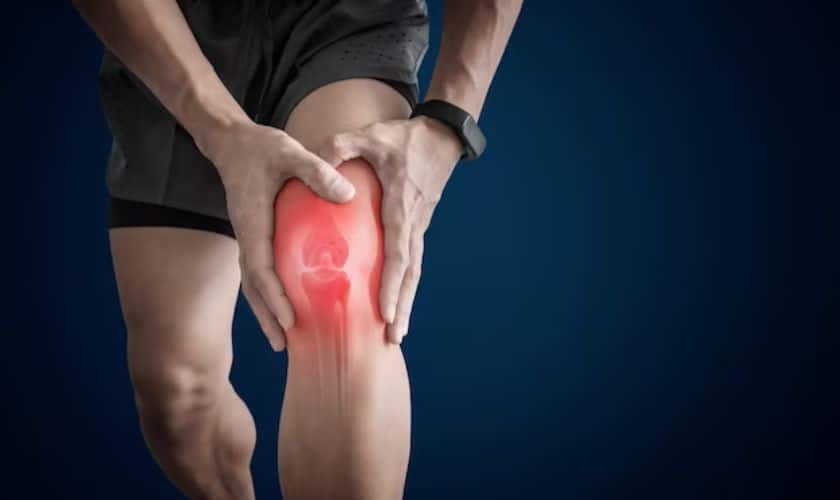
The Role Of Diet In Alleviating Knee Pain: What To Eat And Avoid
Knee pain can be a debilitating condition that affects people of all ages, limiting mobility and diminishing quality of life. While various factors contribute to knee

Knee pain can be a debilitating condition that affects people of all ages, limiting mobility and diminishing quality of life. While various factors contribute to knee pain, including injuries, arthritis, and overuse, the role of diet in managing and alleviating knee pain is gaining increasing recognition. A balanced and nutritious diet can positively impact inflammation, joint health, and overall well-being. In this comprehensive guide, we’ll explore the foods to include in your diet and those to avoid to help reduce knee pain and enhance your joint health.
Inflammation is significant in knee pain, particularly osteoarthritis and rheumatoid arthritis. Certain foods can either exacerbate inflammation or have anti-inflammatory properties. By making mindful dietary choices, you can reduce inflammation and support the health of your knees.
Omega-3 Fatty Acids: Found in fatty fish like salmon, mackerel, and sardines, as well as flaxseeds and walnuts, omega-3 fatty acids have potent anti-inflammatory effects. They can help alleviate knee pain and improve joint function.
Colorful Fruits and Vegetables: Berries, cherries, oranges, tomatoes, and leafy greens are rich in antioxidants and vitamins that combat inflammation and support joint health. They also contribute to weight management, which is essential for reducing stress on the knees.
Whole Grains: Opt for whole grains like brown rice, quinoa, and whole wheat, which provide fiber and nutrients. Fiber aids in weight management and promotes a healthy gut, indirectly influencing inflammation levels.
Nuts and Seeds: Almonds, walnuts, chia seeds, and flaxseeds are packed with nutrients like magnesium and vitamin E, which have anti-inflammatory properties and can help manage knee pain.
Healthy Oils: Olive oil, avocado oil, and coconut oil contain healthy fats that have anti-inflammatory effects. They can be used in cooking and dressings to enhance the nutritional profile of your meals.
Turmeric and Ginger: These spices contain powerful anti-inflammatory and pain-relieving compounds. Incorporate them into your diet through curries, teas, or smoothies.
Processed Foods: Highly processed foods often contain trans fats, excessive sugars, and additives that can contribute to inflammation. Limit your consumption of sugary snacks, fast food, and packaged meals.
Sugary Beverages: Soft drinks and sugary beverages can lead to weight gain and inflammation. Opt for water, herbal teas, or infused water with fruits and herbs.
Red and Processed Meats: Red meats and processed meats can promote inflammation due to their saturated fat content. Choose lean protein sources like poultry, fish, legumes, and tofu.
Refined Grains: Foods made from refined grains, like white bread and white rice, have a high glycemic index and can lead to spikes in blood sugar and inflammation. Choose whole grains for sustained energy and better overall health.
Excessive Salt: High sodium intake can lead to water retention and exacerbate inflammation. Limit your salt intake and choose herbs and spices for flavoring.
Staying hydrated is crucial for joint health. Water helps lubricate joints and maintain their function. Aim to drink plenty of water throughout the day, and consider incorporating hydrating foods like watermelon, cucumber, and celery into your meals.
Carrying excess weight places added stress on your knees, contributing to pain and inflammation. Adopting a balanced diet and regular physical activity can help you achieve and maintain a healthy weight, reducing strain on your knee joints.
While diet plays a significant role in managing knee pain, it’s essential to consult a healthcare professional before making significant changes to your eating habits. They can provide personalized recommendations based on your specific condition and needs.
Diet plays a crucial role in alleviating knee pain and promoting joint health. You can reduce inflammation, manage pain, and enhance your overall well-being by including anti-inflammatory foods rich in omega-3 fatty acids, antioxidants, and vitamins and avoiding processed, sugary, and inflammatory foods. Remember that dietary changes should be part of a comprehensive approach to knee pain management, including exercise, medication, and other treatments. Always consult a healthcare professional for guidance tailored to your individual needs.

Knee pain can be a debilitating condition that affects people of all ages, limiting mobility and diminishing quality of life. While various factors contribute to knee
Call 323.939.9039 or click below to schedule an appointment.